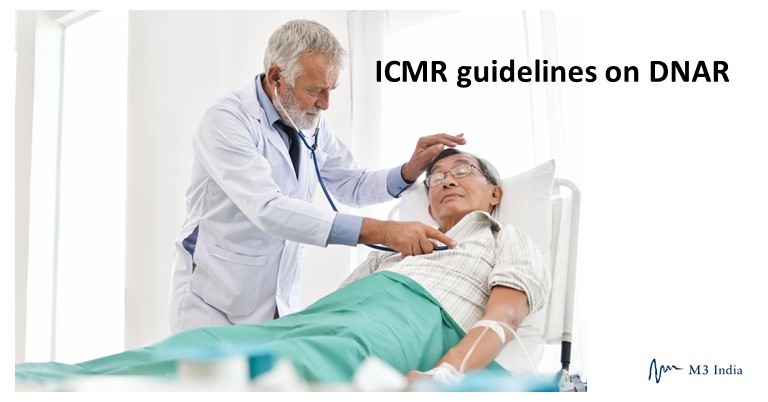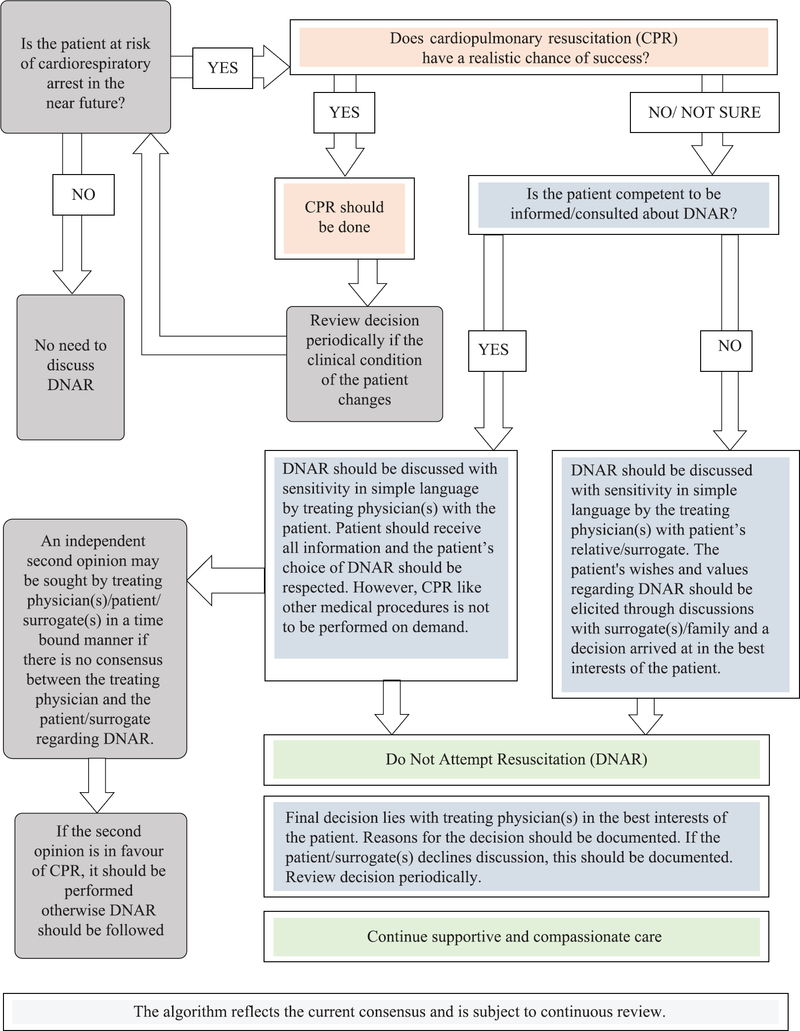Do Not Attempt Resuscitation: ICMR draft guidelines
M3 India Newsdesk Mar 14, 2021
For a significant part of the history of clinical medicine in India, the concept of DNAR (Do Not Attempt Resuscitation) has largely been based on verbal communication between a doctor and the patient or primary caregiver. This has raised several concerns about administering cardiopulmonary resuscitation (CPR) to patients who may not benefit from the same. In light of this, the Indian Council of Medical Research (ICMR) has released a draft outlining guidelines pertaining to DNAR.

The guidelines have been drafted in an effort to provide physicians with an understanding of which patients to perform CPR on given the individual patient’s medical history. In its draft, the ICMR states that it is important to identify those individuals who may benefit from CPR and those whom it would do more harm than help.
The guidelines also aim to ‘preserve the dignity in death’ of individuals who would not benefit medically from CPR. In this manner, the treating doctor can provide care that is focused more on improving the quality of life. It has been drafted keeping in mind individuals who are diagnosed with diseases with no cure, wherein CPR is not only non-beneficial, but may also prolong their suffering. It aims to help doctors determine which patients may improve with CPR.
What does the ICMR’s guidelines say?
Physicians treating individuals who may not have ideal prognosis should begin to discuss with the patient and/or their caregivers and explain in detail the patient’s conditions. This includes explaining to them the benefits and harms of CPR as applicable to the specific patient.
After this, the patient and family/caregiver(s) must be given enough time and space to talk in private to ensure that there is a thorough understanding of DNAR and what it entails. All these discussions are to be documented in the patient’s records as well as the DNAR form.
Furthermore, medical professionals should make it clear that those who do opt to fill out the DNAR form will still receive all the treatment and care for any underlying ‘curable comorbid conditions’ and does not mean that they will automatically not be provided with supportive therapy. The forms must be signed in a language that is understood by the patient and their caregivers both. Should a patient or their attender choose to not sign the DNAR form, this too must be documented.
The treating physician has the final say in whether a patient who has signed the DNAR form can benefit from CPR, or whether it is considered ‘medically inappropriate’. The DNAR decision must be reviewed during regular intervals by the doctor overseeing the patient. Administrative members of the hospital must take on the responsibility of sensitising staff members about DNAR. Providing a team of doctors, nurses, and a psychologist or a social worker to discuss with patients and caregivers about DNAR may also be helpful in preparing them of what to expect and offering support.
The DNAR form must be stored where they can be easily accessed by whichever medical professional may be tending to the patient in view of an emergency. The ICMR guidelines recommend attaching a copy of the form to the patient’s case records as well as incorporating it into all electronic and digital health records, where possible. The case reports and DNAR form of each patient must be archived.
Algorithm for DNAR decision making*

Source: Mathur Roli. ICMR Consensus Guidelines on ‘Do Not Attempt Resuscitation’. Indian Journal Medical Research. 2020. Volume: 151; 4. Page: 303-310
DNAR forms to be provided to the patient and caregivers include a page explaining CPR and what DNAR is. The second page contains the details which must be filled by the caregiver or patient.
This article was originally published on May 21, 2020.
-
Exclusive Write-ups & Webinars by KOLs
-
Daily Quiz by specialty
-
Paid Market Research Surveys
-
Case discussions, News & Journals' summaries